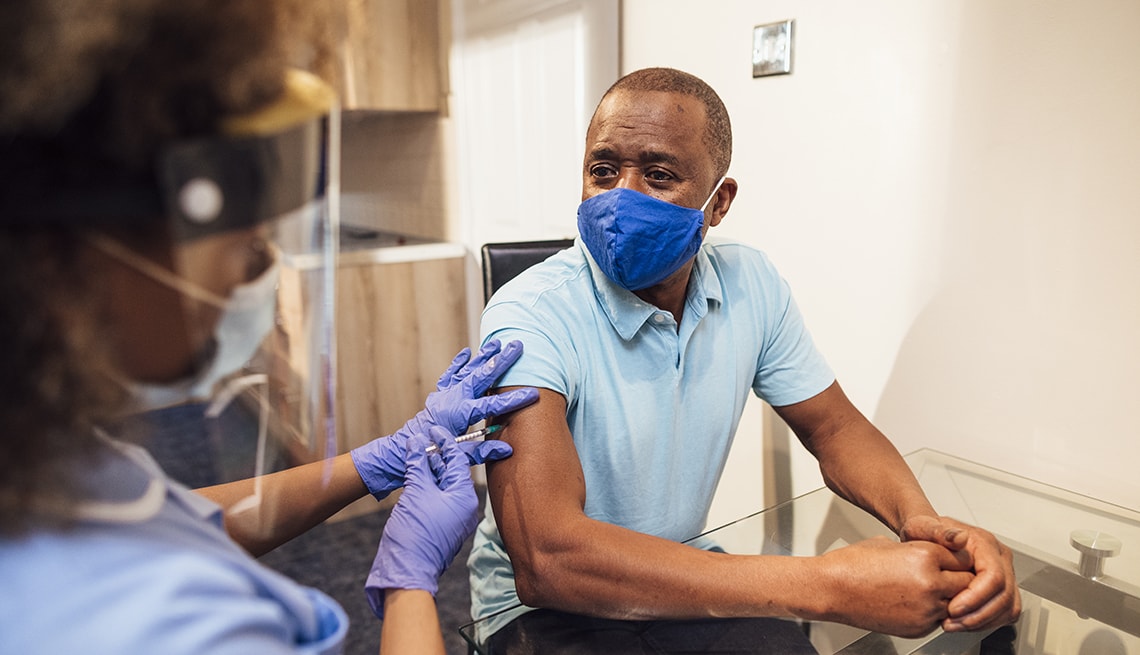UAMS Study Finds that Racial Discrimination Increases Vaccine Hesitancy
| FAYETTEVILLE — People experiencing racial discrimination are more reluctant to get vaccinations, according to a study conducted by researchers at the University of Arkansas for Medical Sciences (UAMS) Office of Community Health & Research.
Researchers analyzed responses from U.S. adults regarding general vaccine hesitancy to compare with known predictors of COVID-19 vaccine hesitancy. Researchers found that predictors of COVID-19 vaccine hesitancy and general vaccine hesitancy were similar and that individuals who experienced racial discrimination — such as being prevented from doing something or made to feel inferior at school, at work, in receiving medical care, or in other settings due to their race — had a higher chance of expressing vaccine hesitancy in both cases.
According to the National Institutes for Health, vaccine hesitancy refers to a reluctance or refusal to vaccinate and is attributed to a number of underlying causes that vary across time and communities.
UAMS researchers found that age, gender, race and education were among the predictors of general vaccine hesitancy, with younger people and women being twice as likely to be vaccine hesitant than older people and men. Participants who had a high school diploma were also more likely to report vaccine hesitancy than those with more academic credentials, and participants who had health coverage and saw a regular doctor for routine check-ups were less likely to report vaccine hesitancy than those without health coverage. Researchers also included a large sample of American Indian, Alaskan Native, Asian and Native Hawaiian/Pacific Islander participants in the study and found that individuals who experienced racial discrimination were more likely to report vaccine hesitancy.
“To address vaccine hesitancy, we must understand what influences a person’s decision to be vaccinated or not,” said Sheena CarlLee, M.D., an assistant professor in the UAMS Department of Internal Medicine’s Division of Community Health and Research and program director of the UAMS/Washington Regional Internal Medicine Residency Program. “Vaccine hesitancy is not a singular problem, but if we can understand these influences, then we improve health policies and systems.”
According to the Centers for Disease Control and Prevention (CDC), about 57% of the state’s residents received their primary series of the COVID-19 vaccine. Only 11% have received the updated bivalent booster shot that was released to the public last year.
Data from the CDC shows that about 42% of Arkansans received a flu vaccination in 2021, and approximately 66% of Arkansas children received all recommended childhood immunizations by age 24 months. Arkansas was ranked 26th on the U.S. Census Bureau’s 2020 list of most racially and ethnically diverse states.
The UAMS Northwest Regional Campus includes 329 medical, pharmacy, nursing and health professions students, 66 medical and pharmacy residents, and two sports medicine fellows. The campus has nine clinics including a student-led clinic, orthopaedics and sports medicine, and physical, occupational and speech therapy. Faculty conduct research to reduce health disparities.
UAMS is the state’s only health sciences university, with colleges of Medicine, Nursing, Pharmacy, Health Professions and Public Health; a graduate school; a hospital; a main campus in Little Rock; a Northwest Arkansas regional campus in Fayetteville; a statewide network of regional campuses; and seven institutes: the Winthrop P. Rockefeller Cancer Institute, Jackson T. Stephens Spine & Neurosciences Institute, Harvey & Bernice Jones Eye Institute, Psychiatric Research Institute, Donald W. Reynolds Institute on Aging, Translational Research Institute and Institute for Digital Health & Innovation. UAMS includes UAMS Health, a statewide health system that encompasses all of UAMS’ clinical enterprise. UAMS is the only adult Level 1 trauma center in the state. UAMS has 3,240 students, 913 medical residents and fellows, and five dental residents. It is the state’s largest public employer with more than 11,000 employees, including 1,200 physicians who provide care to patients at UAMS, its regional campuses, Arkansas Children’s, the VA Medical Center and Baptist Health. Visit www.uams.edu or www.uamshealth.com. Find us on Facebook, Twitter, YouTube or Instagram.
